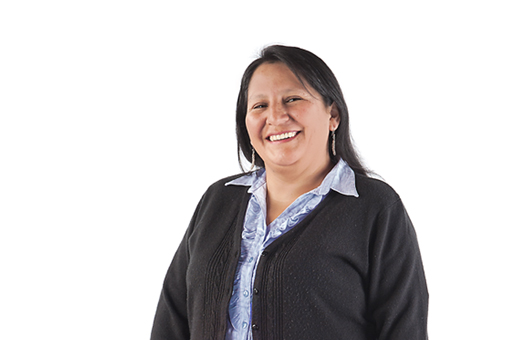This article is part of the Leaders of Social & Political Change series from the Fall 2012 issue of Americas Quarterly. View the full special section.
We Indigenous peoples have made great progress in the defense of our rights and the rights of Mother Earth (Pachamama). In many countries, our rights and connection to our lands are articulated in our countries’ constitutions. Today, there exists a recognition of who we are: the native peoples of the Americas, or in Kuna, Abya Yala. We are the heirs and heiresses of thousand-year-old civilizations. We have conserved our spirituality as sons and daughters of Mother Earth, preserved our ancestral knowledge and know-how to face new challenges posed by globalization and modernity, and maintained our forms of political, social and religious organization.
Today, these traditions, practices and knowledge are all the more important.
We are up against the voracity of a global market that has brought with it the growth of extractive industries. Extraction—whether of minerals, hydrocarbons or timber—deeply affects our society, culture and relations within our communities. In the worst cases, it has often put our very survival at risk.
These economic, political and social challenges demand that Indigenous peoples are organized to defend our rights and to negotiate our role and insertion into domestic and global economies.
But the process of achieving social, cultural and political recognition has not been easy. Domination, exploitation, racism, and discrimination have caused many of us to lose our ethnic and cultural identities, and condemned many of us to poverty and vulnerability. Nevertheless, we Indigenous peoples know how to organize, resist and fight for our rights to exist and to live in our countries. It is through those means—in the democratic systems that we enjoy today—that we will be able to change the injustices and inequalities that persist even today.
Our national struggles have been assisted by our presence and efforts internationally. With the support of networks and friends abroad, we have engaged in various forums to discuss global efforts to protect the rights of Indigenous peoples. Those opportunities have afforded us the space to express our ideas, positions and visions, and establish different international mechanisms to protect our rights.
Our progress would not have been possible without the support of institutions and foundations that bet on strengthening democracy. Their view, as well as ours, is that a democracy must be inclusive and intercultural.Part of that requires that Latin American governments effectively manage policy and administer social programs to ensure the reduction of poverty and the protection of the vulnerable.
One of our greatest allies in this has been the Ford Foundation. They and other groups have realized the importance of overcoming the discrimination and social and cultural exclusion that have marked Latin America’s history. The Ford Foundation and others have helped to spawn a new generation of leadership committed to the democratic transformation of Latin America. The effort, however, goes beyond just race or ethnicity. Support from international foundations has helped to bring to the fore a new generation of women and young leaders.
The path ahead is long and filled with obstacles, including the divisions and challenges to creating access for Indigenous peoples. Right now, our greatest challenge is to translate our momentum, organization and successes into concrete, actionable proposals. Among those should be the construction of plurinational states to guarantee the well-being of our peoples, continuing to push for the recognition of the rights of Mother Earth, and based on those efforts, we need to establish the framework for a civilization that guarantees peace and equity.
We have come very far, but there is still a long way to go. Now it is up to us to transform the global and constitutional rights that have become an accepted reality into a local agenda for policy and social change.




